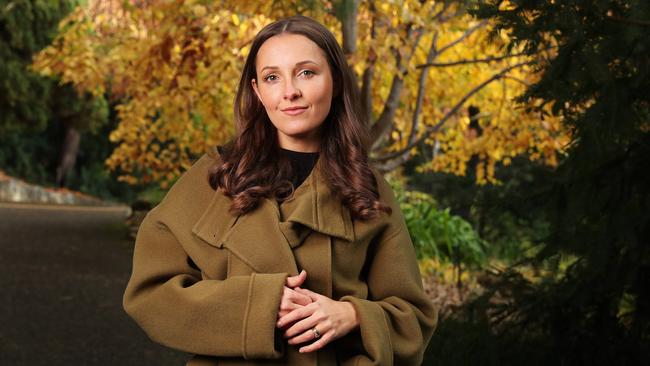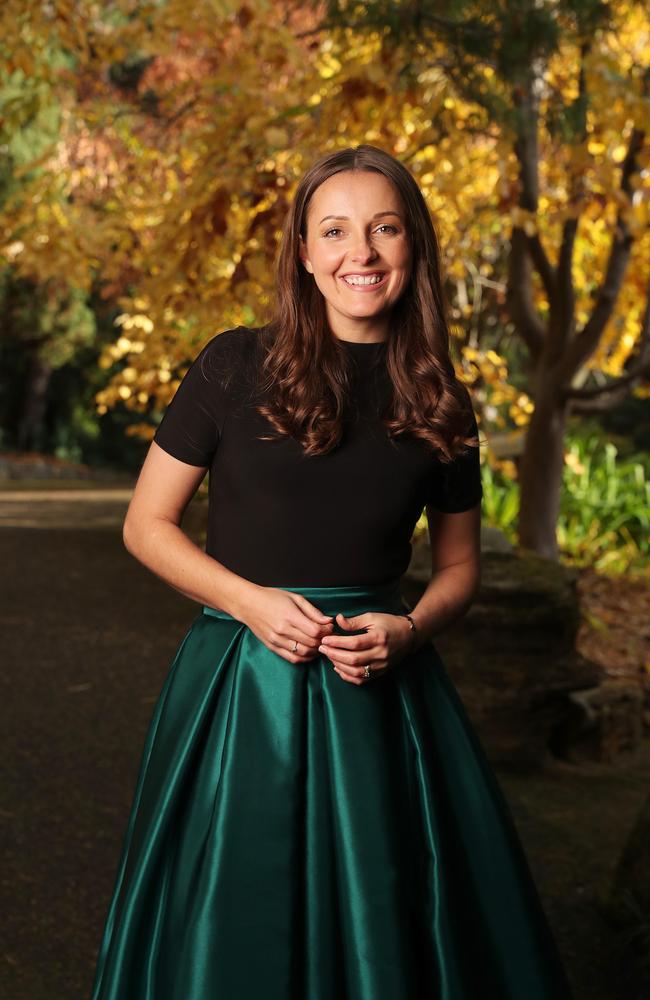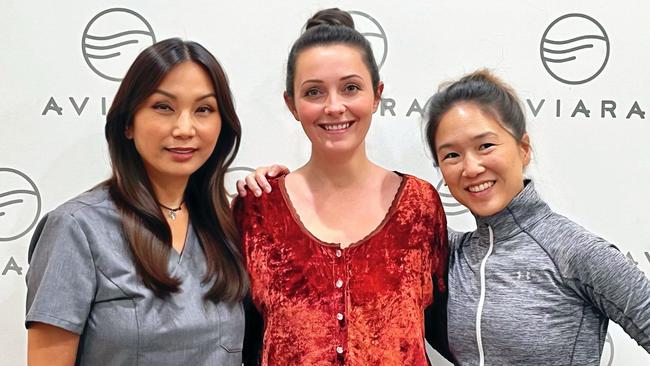Tasmanian soprano Jacqueline Ward part of world-first study on tongue-tied singing
‘I want it to help people like me, sooner rather than later’: A Tasmanian has been part of a world-first study of tongue-tied singing. Here’s what they discovered.

Tasmania
Don't miss out on the headlines from Tasmania. Followed categories will be added to My News.
A Tasmanian singer will present ground-breaking research on the benefits of treating tongue-tie at an international voice conference this month.
In what is believed to be the first-ever case study of tongue-tie in a singer, North-West soprano Jacqueline Ward, has been both the lead researcher and the subject, working with researchers in the United States.
Tongue-tie, or ankyloglossia, is a condition where a thin membrane connecting the underside of the tongue to the floor of the mouth, is shorter or tighter than usual, restricting tongue movement.
Ms Ward was first diagnosed with tongue-tie as a baby but says her parents chose not to have it released.
“I didn’t think much of it until my own child was born with a tongue-tie,” she said.
“He had trouble breastfeeding, which is not the only issue with tongue-tie but only one of the first to show itself.
“We asked two different hospital staff if he had a tongue-tie and were dismissed.”
Ms Ward had her first surgical release in 2020, just weeks before she sustained serious spinal, chest and leg injuries in a car accident which threatened to end her singing career.
“But being a singer and already controlling minute movements of the tongue, I thought I didn’t need to do orofacial myofunctional therapy (OMT).
“OMT is like physio for the mouth and facial muscles. So the outcome was sub-optimal.”

In September last year Ms Ward went to California in the US for more treatment from dentist Dr Katherine Ahn Wallace.
“The astounding improvements confirmed everything we suspected,” she said.
“My airway was narrow due to constriction.
“There was tension all through the face, neck, and down through the body.
“People are suffering.
“I want it to help people like me, sooner rather than later.”
Dr Ahn Wallace brought on two more colleagues to work on the research — Dr Alison Wu, a physical therapist and board certified neurologic specialist, and Elise Newen, a medical student.
“I was concerned about the research being respected when done by ‘just a singer’ with only an undergrad degree.
“We used an integrative treatment approach with a team of providers.”
Ms Ward said a CT image showed the space in her airway became much larger.
“There was a huge improvement in range of motion and reduction of tension in the mouth, neck, shoulders, and the pelvic floor and hip flexors.
“These were not merely subjective, they were all measured because we knew what the possibilities were.
“The pelvic floor wasn’t so specifically measured, but within a couple of weeks I realised that my three main symptoms of pelvic floor tension had disappeared: stress incontinence, painful sex over 10 years, and strong menstrual pain.
“All suddenly resolved!
“I first realised when I sneezed while walking. This is very personal and I hesitated to share it, but honestly it’s just biology and a lot of people may benefit from hearing this.”

There were several tests throughout the treatment, including singing recordings.
“Our research confirmed that tongue-tie prevents the natural downward pull of the larynx, by the lungs when we breathe in to full capacity.
“Because the larynx is pulled upward by the tongue, this actually transfers tension into the lung organs and into the chest.
“This is astounding new information.”
Ms Ward believes there is “still a lot of ignorance” around tongue-tie and a lot of people are left undiagnosed.
“My colleagues and I still learning in each other’s fields as we are still working on our journal paper,” she said.
“Research in this area is desperately needed.
“Singers have struggled, some have given up on their careers,”
Other health effects, she said included sleep apnoea, back pain, head and neck tension and hormonal disruption.
The research will be presented at the 54th annual symposium of the Voice Foundation in Philadelphia on May 29.
To help fund her trip Ms Ward is seeking support through a GoFundMe at https://www.gofundme.com/f/support-jacquelines-research-presentation-in-the-usa
Originally published as Tasmanian soprano Jacqueline Ward part of world-first study on tongue-tied singing



